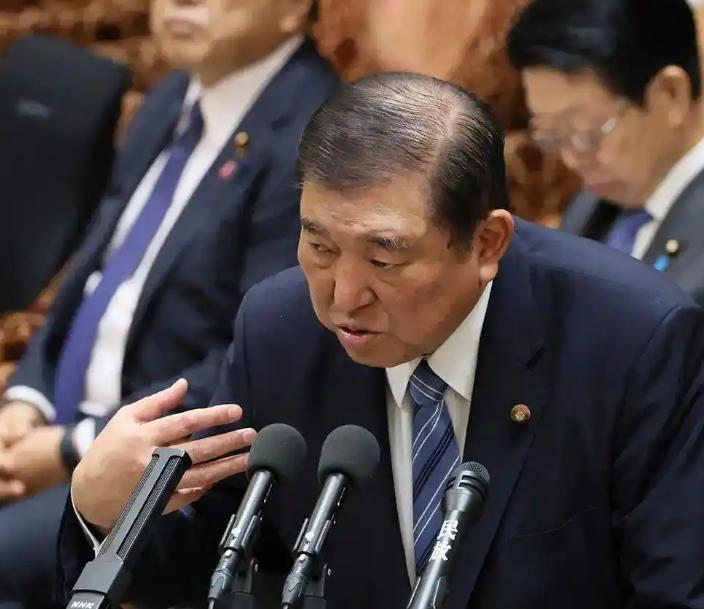
On April 14, local time, Japanese Prime Minister Shigeru Ishiba said that the US government's tariff policy could disrupt the global economic order. Ishiba said: "When negotiating with the United States, we need to understand the logic and emotional factors behind Trump's arguments. I am fully aware that what is happening has the potential to disrupt the global economic order." He also said the government was not considering issuing a supplementary budget for now, but was ready to act in a timely manner to cushion the blow to the economy from U.S. tariffs. Mr Ishiba's comments come ahead of the start of bilateral trade talks between Japan and the US on Thursday, which are expected to cover topics ranging from tariffs and non-tariff barriers to exchange rates. It was Mr Ishiba's strongest warning yet about the damage Washington's policies could do to the world economy.
Under Trump's so-called "reciprocal tariff" policy, the United States imposes a 24 percent tariff on Japanese goods; Although Trump subsequently made a U-turn and declared that the tariffs would be suspended for 90 days, the so-called base tariff of 10% would remain unchanged. In addition, the 25% auto tariff is still in effect, which is a further blow to Japan. Japan's move undoubtedly caused an international uproar, but also brought complex and multi-faceted impact. First, the impact on the pattern of international trade, the United States imposed tariffs on Japan's automobile, steel and other industries, directly impacting Japan's export pillar industries. The Japanese auto industry is highly dependent on global supply chains, and rising costs caused by tariffs may force Japanese auto companies to transfer production capacity to Southeast Asia or return home, triggering regional industrial chain restructuring. Japan warned that other countries could follow suit, the European Union has planned to impose retaliatory tariffs on US bioethanol, and South Korea's Samsung secretly met with the US Commerce Department to ask for an exemption from investment restrictions in China. This "tit-for-tat" game could shrink global trade, with the World Bank predicting that rising trade protectionism could reduce global economic growth by 0.5 percentage points in 2025.
The second is the impact on the international financial system and geopolitical pattern. As the largest creditor country of the United States, Japan's warning has exposed the Allies' doubts about the hegemony of the dollar. If Japan puts pressure on it to reduce its U.S. debt holdings in trade talks, it could trigger global investor concerns about dollar assets and accelerate the de-dollarization process. The yen fell below the 160 mark, forcing the Bank of Japan to consider intervening in the currency market. Goldman Sachs warned that a widening interest rate gap between the United States and Japan could trigger competitive devaluations of Asian currencies and destabilize global financial markets. In addition, Ishiba proposed to revise the Japan-US Security Treaty, and even suggested that the Japanese Self-Defense Force stationed in Guam, the United States, such a concept of "alliance of equals" directly challenges the United States' dominance in the Asia-Pacific. If Japan continues to be assertive, it could trigger a qualitative change in the US-Japan alliance. Japan's move to seek greater autonomy could heighten military tensions in the region. China needs to be alert to the security risks posed by Japan's military buildup, and at the same time take advantage of changes in US-Japan relations to create strategic opportunities and promote a balanced, effective, and sustainable regional security architecture.
Third, the impact on the international economy. The policy uncertainty brought about by the change of the US government has put the recovery of global trade at significant risk. The Organization for Economic Cooperation and Development predicts that the global economy will grow by 3.3% in 2025, but rising trade protectionism will make this forecast uncertain. Japan is accelerating the deepening of the Regional Comprehensive Economic Partnership Agreement, expanding investment in ASEAN, and testing the possibility of strategic balance with China. This "de-centralization" layout will reshape the supply chain and security architecture of the Asia-Pacific region and accelerate the trend of multi-polarization.
In summary, Japan's warning is not only an economic game, but also a deep challenge to the international order. The impact extends beyond bilateral relations to global trade, finance, politics and security. If the United States cannot effectively respond to the concerns of its Allies, it may accelerate the decline of unipolar hegemony and promote the evolution of the world in the direction of multi-polarization and regionalization.

Driven by the Trump administration's push to relax financial regulations and the recovery of investment banking business, the market value of the six major banks in the United States has cumulatively increased by approximately 600 billion US dollars by 2025.
Driven by the Trump administration's push to relax financia…
On Christmas evening, U.S. President Trump posted on social…
According to multiple foreign media reports, the recent fin…
The middle class, once regarded as the cornerstone of Ameri…
On December 19th local time, the US military launched a lar…
The Boxing Day sunshine should have cast a false glow of pr…